
Israel’s silence on Syria isn’t a conspiracy
April 10, 2012 | Ahron Shapiro
The question has arisen over Israel’s position on the appalling situation in Syria, where the lives of over 9,000 civilians have been claimed in a crackdown on protesters and an insurrection by opposition groups.
Some commentators have unfairly interpreted the Israeli government’s comparative silence over the bloodshed compared to other regional and Western countries as cold indifference, others as calculated.
Bizarrely and contradictorily, Israel has been criticised by some commentators for wanting to keep the current government in place and by others for seeking to topple it.

Passover reminds that slavery is not just ancient history
April 6, 2012 | Daniel Meyerowitz-Katz
On Friday night, while the Christian world is celebrating Good Friday and the rest of Australia is celebrating a four-day weekend, the Jewish community in Australia will be holding the annual Passover seder, marking the beginning of the week of Passover.
The story of the children of Israel’s escape from Egypt is well-known – there was even an animated movie about it – yet Jews are called upon to recount the Exodus each year in its entirety as if it were we who had left slavery in Egypt towards freedom in the Promised Land.
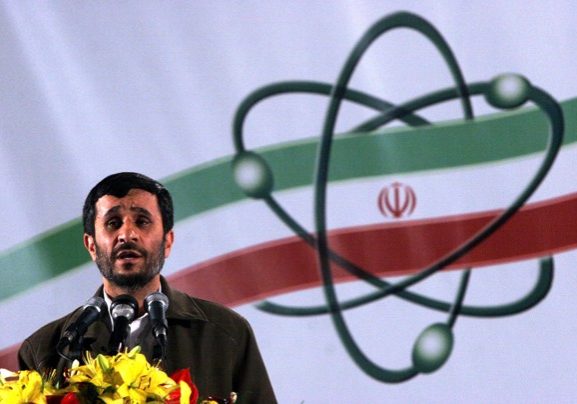
Emanuele Ottolenghi: Iran regime change only hope
April 3, 2012 | Emanuele Ottolenghi
A cold war will quickly turn into a hot one unless drastic action is taken.
As the drumbeat of war mounts in the Middle East, people wonder if an Iran-Israel war is inevitable.
Iran’s rhetoric about wiping Israel off the map continues unabated – as does its quest for nuclear weapons. Israel views the combination of Tehran’s relentless rhetoric against the Jewish state with a nuclear weapon as an existential threat…

Jihadism, Antisemitism and the truth about the Toulouse murders
March 30, 2012 | Tzvi Fleischer & Sharyn Mittelman
When is a hate crime not a hate crime? Apparently, when a self-proclaimed “Islamic warrior” seeks out an obscure Jewish school, and shoots dead a teacher and three small children simply for being Jews – at least according to some reactions to the massacre that occurred in Toulouse, France on 19 March.
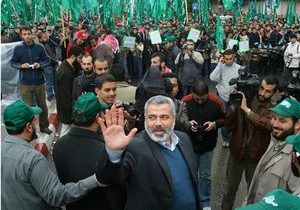
Rather than compromising, Hamas is gaining confidence
March 21, 2012 | Colin Rubenstein
Over the past weekend, over two hundred rockets were fired into southern Israel from the Gaza Strip, injuring several people, sending up to a million Israelis to the bomb shelter, and canceling school for approximately 200,000 students. Israeli air strikes targeted the Popular Resistance Committee (PRC) and Palestinian Islamic Jihad – the groups responsible for the rocket attacks – killing 26 Palestinians of whom 22 were terrorists, many hit in the act of firing rockets.
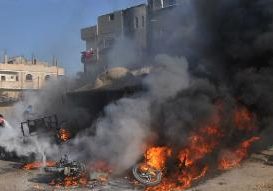
The facts and the hearsay on Israel
March 19, 2012 | Ahron Shapiro
Terror sponsorship has been around for as long as terrorism.
It’s a phenomenon that has been widely recognised, which allows a group to use terrorism as a tool while insulating themselves from direct responsibility. As an added benefit, in some cases it allows for additional logistical possibilities in planning a terror attack.
Naturally, nobody should be fooled: a terror sponsor who provides planning and support for a terror attack is as responsible as those who are sent to pull the trigger.

The problematic Palestinian unity government deal
March 9, 2012 | Colin Rubenstein
While the fractured rule of the Fatah-dominated PA in the West Bank and the Hamas-led Gaza Strip has been an obstacle to a two-state peace solution with Israel, it does not follow that this move towards Palestinian unification will improve the chances for peace. On the contrary, though the prospect of a functioning Palestinian unity government is by no means assured and indeed looks like being postponed yet again, even if it can be realised, any such government may carry with it dangerous implications…
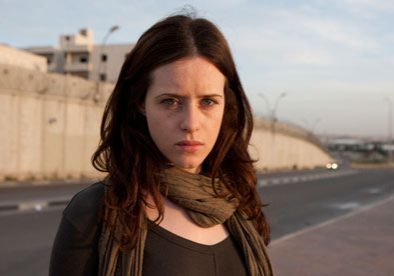
Angelic Arabs and murderous Jews add up to televisual propaganda
February 16, 2012 | Jamie Hyams & Tzvi Fleischer
PROPAGANDA comes in many forms. The British/French mini-series, The Promise, recently shown over four consecutive Sundays on SBS TV, is a particularly insidious example. It tells the story of a British girl, Erin, just out of school, who stays with the family of her closest friend in Israel during the second intifada.
She has taken the diary of her grandfather Len, who served as a British soldier in mandate Palestine from 1945 to 1948, so the action switches between the British battling the treacherous Jews in the 1940s and the brutal Israelis oppressing the Palestinians today.
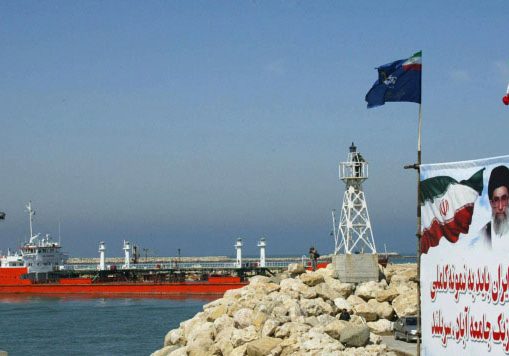
Tough targeted sanctions needed against Iran
January 20, 2012 | Colin Rubenstein
The International Atomic Energy Agency (IAEA) report released in November 2011 provides the strongest evidence to date that Iran has undertaken research and experiments geared towards developing nuclear weapons. And just last week, the IAEA confirmed that Iran was enriching uranium up to 20 percent, a major step toward weapons grade level, at an underground site at ‘Fordow’, a once-secret underground site revealed in September 2009 by the US, France and Britain.
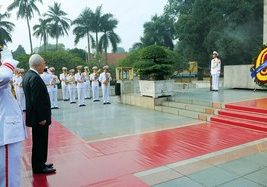
Enhancing Israel-Asia relations
December 31, 2011 | Colin Rubenstein
Israeli President Shimon Peres’s groundbreaking visit to Vietnam in November with a delegation of more than 60 prominent Israelis, including two government ministers and leading figures in finance, industry, agriculture and defense was a landmark event. The delegation was given a rousing welcome, including a dinner with all the members of the Vietnamese government in which Peres’s hosts surprised him with a group of Vietnamese singers who had prepared renditions of Israeli songs in excellent Hebrew.
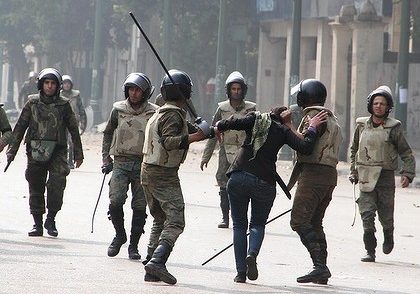
New order, same rules
December 27, 2011 | Or Avi Guy
Will the Arab revolutions bring freedom for women? So far the signs are bad.
Many women in post-revolution Egypt, Libya and Tunisia are concerned. During the Arab Spring they played a key part in the protests by taking to the streets, marching and protesting alongside men. As the old order fell, hopes for new-found freedoms and political liberties surged, and women’s rights were no exception. Yet some of the new regimes have been quick to reinforce laws and norms limiting these rights, justifying it as a return to values undermined by previous regimes…

Negotiations only way ahead in Israel-Arab conflict
November 18, 2011 | Allon Lee
One of the many admirable characteristics of the Australian archetype is a propensity for plain speaking.
So it is to Prime Minister Julia Gillard’s credit that Australia sent the Palestinian Authority a clear message by voting against admitting the non-existent state of Palestine to the United Nations Educational, Scientific and Cultural Organization (UNESCO). In essence Australia was reaffirming its repeated stance that the only way to end the Israeli/Palestinian conflict is through negotiations.
As it is, the Palestinians will now apply to 16 other UN affiliated bodies for admission on the specious basis of being a state, which they are not yet according to the criteria set out under international law.






